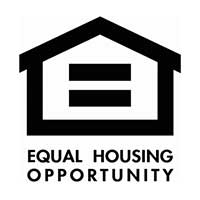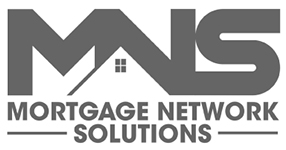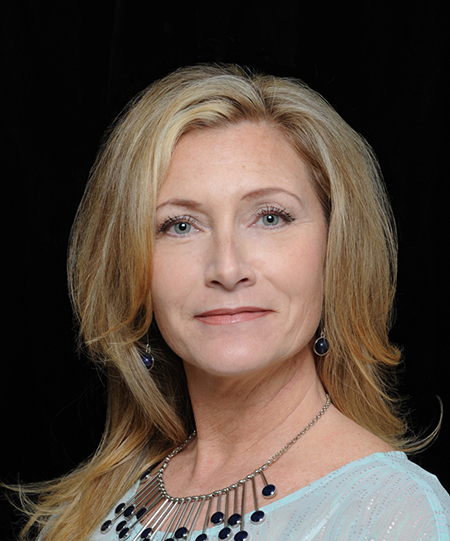Mindy Edwards
Mortgage Network Solutions
At Mortgage Network Solutions, our mission is to set a high standard in the mortgage industry. We are committed to quality customer service-putting the customer we serve first. By taking advantage of our expertise in the residential lending industry, you will find that the skill, professionalism, and consideration we give to each of our clients make getting your loan a successful endeavor. We are a mortgage broker and banker, here to get you the financing you need with many loan options available.
Top Workplace 2019

NMLS ID #58096
Programs
As a loan officer for Mortgage Network Solutions, I am committed to providing honest and thorough education about the loan process and all the options that are available. As a mortgage broker, Mortgage Network Solutions has access to real estate loan programs that most banks cannot offer. I ensure guidance and support throughout the entire process and I try to make the experience as easy and stress free as possible. I work hard to help my clients purchase the home of their dreams.
Licensed to work in: North Carolina (I-163414)

Down Payment Assistance - National Program A
A down payment assistance program, which is offered by a governmental entity, which we are calling “DPA Advantage.” This program is designed to provide down payment assistance in the form of a grant equal to either 2% or 3.5% of the purchase price to a wide variety of eligible borrowers.
PROGRAM HIGHLIGHTS
• A simple one-step process: we do all the coordination; there is no third party for you to engage with
• May be combined with up to 6% seller concession for closing costs
• Minimum qualifying credit score: 620
• Can be used with the FHA 203(b) program or any of our FHA renovation programs, as well as the FHA One-Time Close program (the 3.5% grant is not currently available for the FHA OTC program)
CLOSE ALL

Flex Term Loans
Refinance – Reset your mortgage but not your Term. Flex terms allow you to do that, If you don’t want to stretch out your mortgage term you can refinance for the amount of years you have left.
FHA Loans
The links provided are articles aimed at helping you better understand FHA loans. With this information you can make a more informed decision on whether these government insured loans are right for you and your family.
USDA Loans
• Great for First-time Home Buyers
• 100% Financing (including Closing Costs)
• No Down Payment Requirements
• No Prepayment Penalties
• Low Rates
• Existing Homes, Foreclosures, New Construction
Benefits of USDA Loans
• 100% Financing – you can buy a home with no money down. In some cases you can even finance your closing costs. You can refinance your home up to 100% of the value of your home. Low Fixed Rate Mortgage Options.
They are usually easier to get because the Government insures the loan so that there is much less risk to the lender. They can be used for Existing Homes, Foreclosures or New Construction. Simple Loan Process. No Loan Limit. No Acreage Limit.
• There is No Prepayment Penalty.
You can use the loan to repair or add on to your home. Flexible Credit Requirements.
Who is eligible for a USDA Loan?
Generally, these loans are available to anyone who meets minimum credit guidelines and local area income requirements and is purchasing a home or refinancing their home in an area that is not considered a major metropolitan area by USDA.
Some common misconceptions of USDA Loans:
They are just for farmers – USDA Loans are not “just for farmers,” millions of people from all walks of life already qualify.
FHA or Conventional Loans are better – USDA Loans often offer better terms than an FHA or conventional loans. They aren’t flexible – Actually, USDA Home Loans can be used to buy a new home or refinance to a lower rate. Only certain people can qualify – Anyone who meets the income and credit guidelines can qualify for a USDA Home Loan.
They are only for rural areas – Actually, USDA Loans are available in many areas that most people would not consider rural. For example, many small communities just outside of metropolitan areas qualify as rural areas according to the US Department of Agriculture. They are harder to get than FHA or Conventional Loans – This just is not true. In many cases USDA
Loans are easier to get because the loans are guaranteed by the government.
CLOSE ALL

Conventional Loans
Conventional Loans are mortgage loans that are not insured by the government (like FHA, VA, USDA Loans), but they typically meet the lending guidelines that have been set by Fannie Mae or Freddie Mac. Typically, conventional loans have better rates, terms and/or lower fees than other types of loans.
PROGRAM HIGHLIGHTS
Conventional Loans are mortgage loans that are not insured by the government (like FHA, VA, USDA Loans), but they typically meet the lending guidelines that have been set by Fannie Mae or Freddie Mac. Typically, conventional loans have better rates, terms and/or lower fees than other types of loans. However, conventional loans typically require a borrower to have good-to-excellent credit, reasonable amounts of monthly debt obligations, a down payment of 5-20% and reliable monthly income. Conventional loans are ideal for borrowers with excellent credit and at least a 5% down payment.
Most Common Types of Conventional Loans
Fixed Rate Mortgages: Your rate and payment never change.
30 Year Fixed Loan
Benefits: Lowest fixed monthly payments 20 Year Fixed Loan Benefits: Low fixed monthly payments 15 Year Fixed Loan Benefits: Lower rate than the 15 or 20 Year Fixed; Pay less interest and pay your home off more quickly. 10 Year Fixed Loan Benefits: Lower rate; Pay off your loan and build equity faster. 5 Year Fixed Loan Benefits: Lowest rate; Pay off your loan and build equity the fastest.
Adjustable Rate Mortgages: After the initial period your interest rate can change once a year.
3/1 ARM Fixed Rate for 3 Years, Adjustable Rate for the remaining 27 years 5/1 ARM Fixed Rate for 5 Years, Adjustable Rate for the remaining 25 years 7/1 ARM Fixed Rate for 7 Years, Adjustable Rate for the remaining 23 years
What are the Conventional Down Payment Requirements ?
For Purchase transactions Conventional Loans require the home-buyer to put down at least 5% – 20% of the purchase price of the home. For a Refinance transaction, most lenders require at least 10% equity in the property. If you don’t have enough equity to qualify for a conventional refinance – even if you owe more than your home is worth – you might be eligible for a HARP 2.0 Loan.
What types of property are eligible?
Most conventional loan programs allow you to purchase single-family homes, warrantable condos, planned unit developments, and 1-4 family residences. A conventional loan can also be used to finance a primary residence, second home and investment property.
3% Down Payment Mortgage for First-Time Homebuyers
Many home-buyers have a hard time juggling everyday expenses while saving for a down payment or closing costs. Rent, utilities, car payments, student loans, and credit cards, not to mention groceries, can sometimes drain your bank account as quickly as money is deposited. Considering all of that, it’s no surprise that saving for a home is one of the biggest hurdles to actually buying a home. But that doesn’t have to be your experience. Today’s buyers have mortgage options that require down payments well below 20% of the home’s purchase price. In many cases you can buy a home with just 3% down.
How Does It Work?
First-time home-buyers who can’t afford a large down payment but would otherwise qualify for a home loan may be eligible for a 3% down payment mortgage. If you’re good at managing your credit and meet certain requirements, this could be the option for you. A mortgage lender can provide the specifics, assess your financial situation, and determine eligibility. But before you contact a lender, consider these initial requirements:
1. At least one person on the loan must be a first-time homebuyer. (In this case, “first-time homebuyer” means that you haven’t owned any residential property in the past three years. Or, if you’re buying the home with someone else, at least one of you hasn’t owned a home in the past three years.)
2. The home being financed must be a one-unit property (including townhomes, condos, co-ops, and PUDs) and not a manufactured home.
3. You plan to occupy the home as your primary residence; and
4. The mortgage must have a fixed rate (adjustable rate mortgages (ARMs) are not eligible for the 3% down payment mortgage).
FHA 203K Rehabilitation
The FHA 203(k) allows homeowners to finance rehab costs within a single mortgage — rather than having to obtain a separate loan to finance the cost of repairs or walking away from a home because you don’t have the cash for home improvements. This program covers one-to two-family homes as well as FHA-approved condominium projects, planned unit developments (PUDs), and manufactured housing. There are two different 203(k) programs: Standard and Limited. Either program can be used in conjunction with the FHA GNND and FHA $100 Down. Limited can also be used in conjunction with HUD REO Repair Escrow Programs.
CLOSE ALL
Mindy Edwards
mindy@myoptimalequity.com
813-892-0091
Testimonials
“We got a great low interest rate, way lower than expected. Our PMI was very low as well. Mindy worked hard to make sure closing was on schedule and did a great job for us!”
“Mindy was super friendly and works around the clock to make sure she gets you the best deal in a timely manner. Very knowledgeable of the process and excellent at getting a great deal and approval.”
“Mindy went out of her way to ensure our application proceeded as smoothly as possible. Our application was made more difficult as I am from the U.K. however Mindy was there every step of the way and went above and beyond. First class service and highly recommended.”

